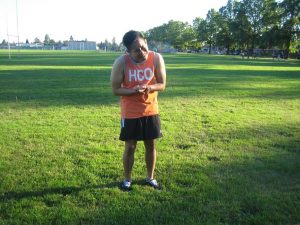A broken knuckle usually happens during a street fight and fist fight. It causes severe pain and discomfort and affects regular daily activities.
The knuckles are the joint found between the fingers and hand which become prominent when clenching the hand. The bone of finger is called phalanx and forms joint with the bone of the hand called metacarpal bone. There are 10 knuckle bones and 5 knuckle joints in each hand. The head of the metacarpal bone and phalanx form the knuckle are the hardest bone in the hand, but these can break or fractured when making a full fist and hits a hard object such as wall or a floor.
Causes of a broken knuckle

- Domestic violence such as during a brawl or a fight.
- Participating in contact sports. Falling with stretched arm and clenched fist while playing football, soccer or rugby.
- Falling from a height while holding an object in hand
- Severe vehicular accidents
Symptoms
- Severe pain of the affected area. A jolt of pain can be felt or can be a dull or throbbing ache
- Popping sensation upon impact
- After the injury, the affected area starts to swell
- Stiff and difficulty moving the area
- Numbness and tingling sensation of the affected area
- Bruising of the area
- A sunken knuckle
- The bone can become infected by infection in the tissue or from the bloodstream.
- Delayed union of the knuckle bone
- Mal union which result in a twisted or smaller form of bone
- Nonunion, the bone will not return to its original state
Treatment
- Rest the affected area. Avoid performing or using the hand that result to pain for fast healing of the condition.
- Clean open wounds using an antiseptic solution or warm water and a mild soap to prevent development of infection. Once it is already cleaned, cover the wound with a dressing, gauze or a bandage.
- Use heat and cold therapy on the affected area. Apply cold pack on the affected for at least 20 minute every 2-3 hours to lessen the swelling and the pain. Cold pack can be in the form of an ice compress, frozen vegetable such as peas or corn. Apply hot compress on the area for at least 10-15 minutes to lessen the stiffness and the spasms of the muscles. Avoid ice or heat directly on the skin. Wrap whatever cold and heat therapy is used using a towel to prevent further injury and worsen the condition.
- Immobilize the affected knuckle using a brace to prevent unnecessary movement and keep the hand in fist position for at least 3-6 weeks or until the fracture is totally healed. Another alternative is strapping the affected area to the adjacent finger to keep the knuckles in straight position for at least 2-3 weeks for fast healing of the condition.
- Elevate the affected area above the level of the heart to lessen the inflammation and the swelling.
- Take the prescribed anti-inflammatory medications to lessen the pain and the inflammation.
More Information
The details posted on this page on a broken knuckle is for learning purposes only. To learn to recognize the signs of this injury, enroll in a first aid course with one of our training providers.
FACT CHECK
https://www.healthline.com/health/broken-knuckle
https://www.epainassist.com/sports-injuries/finger-injuries/broken-knuckle

